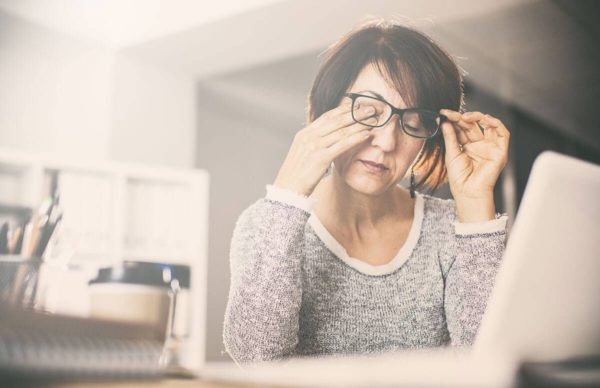International Women’s Day is coming up on the 8th of March 2022, the theme this year being #BreakTheBias. Few areas of a woman’s life are as riddled in taboo and stigma than the menopause, with women discreetly battling often distressing symptoms, such an anxiety that can cause havoc in the workplace. Symptoms can have such an impact on the women’s work that a quarter consider leaving employment all together.

The number of women of a menopausal age make up the fastest-growing demographic in the UK workplace, yet 14 million working days are lost every year to the menopause, costing the UK economy millions.
The menopause is a natural life phase that begins for many women around the age of 51. However, in the months and years leading up to menopause, the transition period known as the perimenopause can give rise to new symptoms and changes many women are not even aware of which can play havoc in their everyday and working lives. Research suggests that 75% of women will experience some symptoms while a reported 25% experience symptoms so severe that they consider leaving their job.
Founder of The Merry Menopause and Menopause and Menstruation Educator, Jo Fuller comments;
“Anxiety is a common symptom that many women experience as part of the menopause. It is so important for women to understand the physical and emotional changes that take place during their menopause transition and the impact this will have on day-to-day life and within the workplace.”
Anxiety occurs when the body’s ‘fight or flight’ defence works continuously. An ‘imbalance’ in the way the body processes environmental and sensory stimuli leads to a disproportionate ‘excitatory’ response, and excessive release of neurotransmitters between nerve cells in the brain. This causes an overstimulation of the nervous system and feelings of anxiety.
During the menopause and perimenopause, changing hormone levels contribute to this imbalance in the brain and heightened levels of anxiety. Immediate Past Chair of the British Menopause Society Kathy Abernethy explains:
“When you start the menopause, oestrogen levels begin to decline and fluctuate. Your body also produces less progesterone. These hormones influence the production of a neurotransmitter called serotonin, which is a mood-regulating transmitter. Alongside these emotional changes, coping with physical symptoms, such as sleeplessness and hot-flushes, can leave women feeling worn out, frustrated and of course anxious.”
Recent research conducted by Anxiety UK and Kalms revealed that 98% of women believed their anxiety was triggered by the menopause or perimenopause, which can have negative implications on a women’s ability to perform well in the workplace.
Jo Fuller continues;
“Removing the stigma around the menopause is key to creating a more diverse and inclusive workforce that makes women feel supported throughout all stages of their lives. Many women may not be aware that their symptoms are hormone related, making it harder for them to understand what steps or lifestyle changes they can make to minimise the effects of their symptoms.
“Talking more openly about the menopause with friends, family members and colleagues can help to normalise the conversation and remove some of the fears many women feel when it starts to impact their everyday lives.”
Jo shares 5 helpful tips on how to incorporate positive lifestyle changes to help women work through the menopause more comfortably and continue to thrive:
- Stay active: Exercise releases endorphins, the hormones which trigger a positive feeling in the body, but it also helps the body to detoxify itself, flushing out unwanted toxins which can trigger symptoms. Not only will you feel great, it will benefit your heart, bones, mental health and go a long way to improve any issues with sleeplessness!
- Eat well: A whole-foods diet which contains a variety of fruit, vegetables and high-quality proteins may help to reduce menopause symptoms. Limit processed foods, caffeine and alcohol, especially in the evenings, as these have been linked to triggering hot flashes throughout the night which can contribute to broken sleep.
- Try a traditional herbal remedy: Pharmaceutical grade lavender oil is clinically proven to reduce psychological and physical symptoms of anxiety and is less harmful than commonly prescribed anti-depressants. It is comparable to treatment with pharmacological medication without experiencing symptoms such as sedation or addiction and is found within Kalms Lavender capsules.
- Get organised: If you’ve had a bad night’s sleep or you’re feeling particularly foggy, maintaining concentration throughout the day can be a real challenge. Write your to-do list the night before so you’re on top of key priorities for the next day ahead.
- Talk more: Everyone’s experience of the menopause is different and it’s important we don’t shy away from speaking up and being more open about the symptoms so many women experience, in order to make the workplace a more comfortable and supportive environment.
